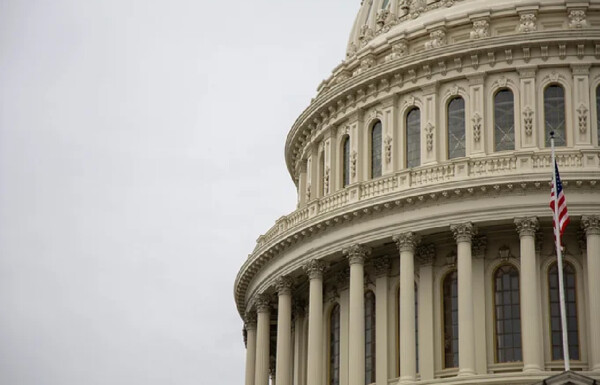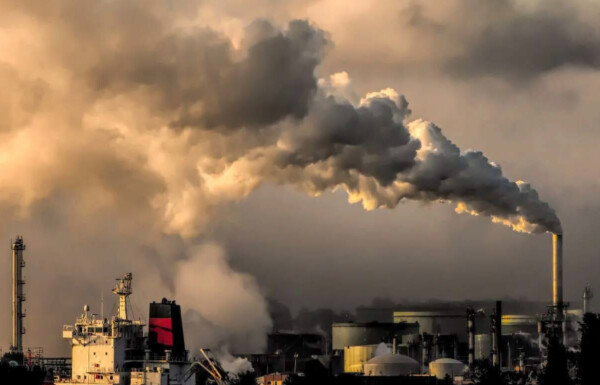Brownsville-Area Officials, Agriculture Leaders, and Farmers Emphasize Need for Federal Funding to Support Sustainable and Conservation-Focused Agriculture

Speakers call on federal officials to oppose any attempts to reduce investments in climate smart agricultural programs
(Harlingen, TX) – Today, public officials, farmers, and agriculture leaders convened a press conference to highlight how the federal Inflation Reduction Act (IRA), signed into law in 2022, is now providing critical funding for farmers to help them improve conservation efforts and mitigate the dire impacts of climate change.
Thanks to this transformative legislation, roughly $19.5 billion was allocated to the U.S. Department of Agriculture (USDA) conservation programs to help farmers become more resilient to extreme weather events while simultaneously protecting our resource base and reducing the use of fossil fuels. USDA research concluded that these conservation practices have helped reduce water erosion by 70 million tons and also decreased diesel gas usage by 110 million gallons. In the past, these conservation programs were oversubscribed and underfunded, but thanks to the new law, more Texan farmers are now able to participate in these popular programs.
Diana Padilla, owner of Yahweh Farm in Harlingen, emphasized the crucial role of federal support. "The Inflation Reduction Act provides essential resources that enable us to adopt sustainable farming practices such as cover cropping and organic soil management," said Padilla. "This support helps to reduce our environmental impact by minimizing soil erosion and improving water retention, which enhances the resilience of our farm. These investments ensure that we can continue to produce healthy food for our community while also contributing to broader conservation efforts."
The agriculture sector is both contributing to and suffering from the effects of extreme weather and other environmental challenges. More frequent and intense storms, drought, air pollution, and other related impacts are resulting in crop loss, land degradation, unhealthy conditions for farmworkers, higher costs to farmers and ranchers, greater challenges for communities experiencing food insecurity, and more unpredictable seasons affecting planting and harvest.
Lindsay Gonzales, Deputy Director at the Farm & Ranch Freedom Alliance (FARFA), discussed the importance of sustainable farming practices. "The challenges faced by our farmers are only growing. The IRA’s support allows independent family farms to implement agricultural methods that conserve, or even regenerate, our natural resources while also improving the farm’s long-term viability," said Gonzales. "This investment is vital for the sustainability of our agricultural sector and for maintaining the health and economic productivity of our rural communities."
Texas’s agriculture industry is a key component of the state’s economy, contributing significantly to both employment and economic output. In 2022, Texas farms sold $32.2 billion in agricultural products, compared to $24.9 billion in 2017. However, environmental challenges pose significant risks to this sector, with increasing temperatures and more frequent extreme weather events threatening crop yields, water resources, and farm viability.
Elise Haschke with the National Center for Appropriate Technology (NCAT), said "At NCAT we are seeing how USDA’s historic investments in climate-smart agriculture are providing enhanced support to the producers and communities we serve. Increased funding for practices such as cover crops, reduced tillage, prescribed grazing, woody plantings, and nutrient management are boosting soil health and fertility, strengthening on-farm resilience, accelerating carbon drawdown, and safeguarding food security. By empowering farmers, ranchers and landowners with technical assistance and funding, we are ensuring a thriving agricultural heritage for future generations."
The IRA designates nearly $40 billion to climate-smart agricultural initiatives, including $19.5 billion to enhance conservation methods like low-till farming and carbon sequestration. An additional $14 billion encourages rural communities to adopt renewable energy sources, fostering both job growth and a cleaner environment.
Harlingen City Commissioner Frank Morales highlighted the local impact of the IRA. "Continued federal support is essential to ensure that our Texas farmers can thrive in the face of environmental challenges," said Morales. "This support helps our local farmers better manage extreme weather conditions like droughts and severe storms, which not only protects our food supply but also supports the economic stability of the Brownsville and Harlingen area."
As the 2018 federal farm bill nears its expiration, safeguarding these conservation investments is more crucial now than ever. Speakers also called on federal officials to thwart any attempts to reduce or redirect the money for climate smart agricultural programs during the consideration of a new Farm Bill.
Please find a full recording of the event HERE.



